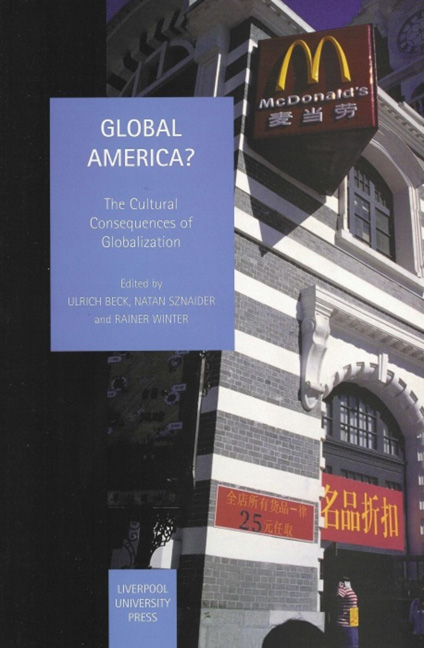Rethinking Americanization
Summary
The problems involved in analysing the degree to which the world is being Americanized are much more complex than we are frequently led to think by many intellectuals, politicians and journalists around the world. This applies also to those whom they influence and who are then strongly disposed to blame virtually every feature of the world of which they disapprove on ‘America’. The latter word, of course, really covers all of the countries of North and South America from Canada in the north to Argentina and Chile in the south, and it is thus not a trivial matter to insist that, in using the term Americanization, we are in fact almost invariably speaking of USAmericanization. In any case, in this supposedly post-Cold War period in which, by conventional wisdom, the USA is the only superpower and enjoys an unprecedented degree of political muscle and economic leverage in the world as a whole, the claims about ‘Americanization’ are very intense. Indeed, some of this could well be called hysterical (complementing and mirroring much of the hysteria inside the USA itself in relation to the world beyond its own borders). This very pejorative attitude towards the USA was, at the time when the present contribution was first begun, being exacerbated considerably by the disturbing circumstances of the disputed presidential election of November 2000. The glee about these electoral escapades in the many commentaries outside the USA was very evident.
This situation was, of course, dramatically brought into even sharper relief by the attacks of 11 September 2001 on the World Trade Center in New York City and the Pentagon in Washington, DC, as well as the crash of a hijacked aeroplane near Pittsburgh, Pennsylvania. It seemed at that time that the somewhat misleadingly named ‘anti-globalization’ movement had been morally damaged in a very serious way. This was apparently so because this movement was in certain ways an American movement, in spite of the anti-American sentiments expressed in much of the rhetoric and actions of the virtually worldwide protests against capitalistic globalization, as opposed to other forms and dimensions of globalization. Thus, the events of 9/11 occurred at a time of growing anti-Americanism. In many parts of the world, the latter was – as it turned out, only temporarily – diminished a great deal by 9/11.
- Type
- Chapter
- Information
- Global America?The Cultural Consequences of Globalization, pp. 257 - 264Publisher: Liverpool University PressPrint publication year: 2003



